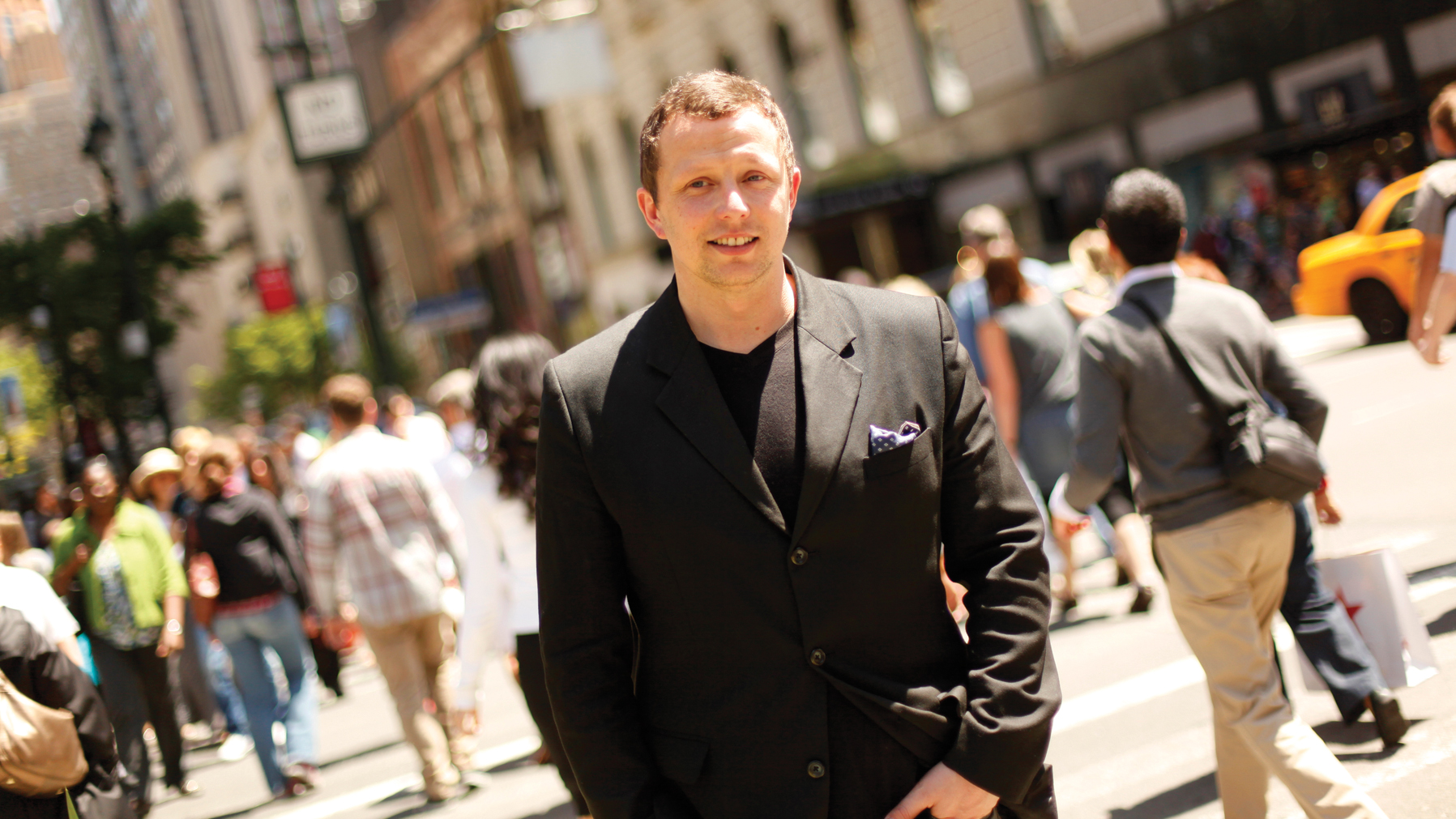Australian native Jon Tyson moved to the United States in 1997, convinced that "the future of the Western church was going to be hashed out here." He later heard Os Guinness say that three questions would plot the course of the 21st century: What will take the place of Communist China? Will Islam modernize peacefully? And will there be a third spiritual renewal in the West?
Tyson jumped on that third question, hoping to be part of the answer. He moved from Orlando to New York City, where he is now pastor of Trinity Grace Church, which has planted five smaller missional communities in what Tyson calls the "city parish" model. The communities come together once every six weeks for a large gathering. Much of this was modeled after Redeemer Presbyterian Church, where Pastor Tim Keller mentored four of Tyson's associates. Redeemer has also invested considerable finances into Trinity Grace's growth.
Tyson, 34, speaks at conferences about urban church planting. Noting that 80 percent of the world's population will live in cities by 2030, Tyson says Christians now have a desire "to return and respond to the places we have missionally abandoned. But people are discovering the pure richness and goodness of living in cities."
Question & Answer
Describe the city parish model.
We're made up of several smaller communities around the city that put a priority on outreach in their respective neighborhoods. Rather than being autonomous, they are networked together to share resources, admin support, and more, aiming to shape the spiritual climate of the city. Our vision is to be a movement of restoration and renewal in each neighborhood and industry of the city by joining God in the renewal of all things.
How is this different from a denomination?
Mainly in structure, by having different "arms" of the church in different neighborhoods. We didn't set out to start a denomination, but to simply start a church. Because New York is organized by neighborhoods, we decided to organize our church that way. It's a missional strategy.
What's an example of transformation?
One of our members invited a co-worker to one of our churches—a man who had smoked weed and been a part of promiscuous gay culture for 30 years. He noticed something in his co-worker, and after a while was compelled by the person of Jesus. He surrendered his life to Christ, turned away from promiscuity, is faithfully in recovery, living in community, and deeply involved in serving others in his neighborhood.
What are your hopes for Trinity Grace?
To serve Jesus faithfully, be a blessing to our neighbors, love one another well, become a counterculture for the common good, and illustrate what a community looks like when Jesus is Lord over that community. I also have a book coming out in August with my best friend, Darren Whitehead, called Rumors of God: Experience the Kind of Faith You've Only Heard About. I am getting ready to write a short book on faith and work, and then something on the New Covenant after that.
More: TrinityGraceChurch.com
Family: Christy (wife); Nathan, 11, Haley, 8 (children)
Reading now: Townie, by Andre Dubus III; Kafka Was the Rage, by Anatole Broyard; When the Church was a Family, by Joseph Hellerman
On your iPod: Walter Smith III, Live in Paris; Charlie Parker with Strings, The Master Takes; Marcin Wasilewski, Faithful
Favorite movie: Children of Men
Favorite Bible verse: Hebrews 11:5
Favorite website: TheAtlantic.com/infocus
Copyright © 2011 Christianity Today. Click for reprint information.
Related Elsewhere:
More information on Jon Tyson's ministry and NYC church plants can be found at TrinityGraceChurch.com.
Previous "Who's Next" sections featured Jonathan Golden, Paul Louis Metzger, Amena Brown, David Cunningham, Timothy Dalrymple, John Sowers, Alissa Wilkinson, Jamie Tworkowski, Bryan Jennings, L. L. Barkat, Robert Gelinas, Nicole Baker Fulgham, Gideon Strauss, W. David O. Taylor, Crystal Renaud, Eve Nunez, Adam Taylor, Matthew Lee Anderson, Margaret Feinberg, and Jonathan Merritt.










